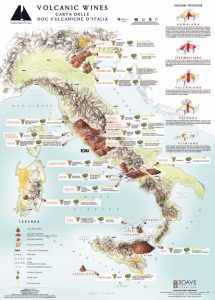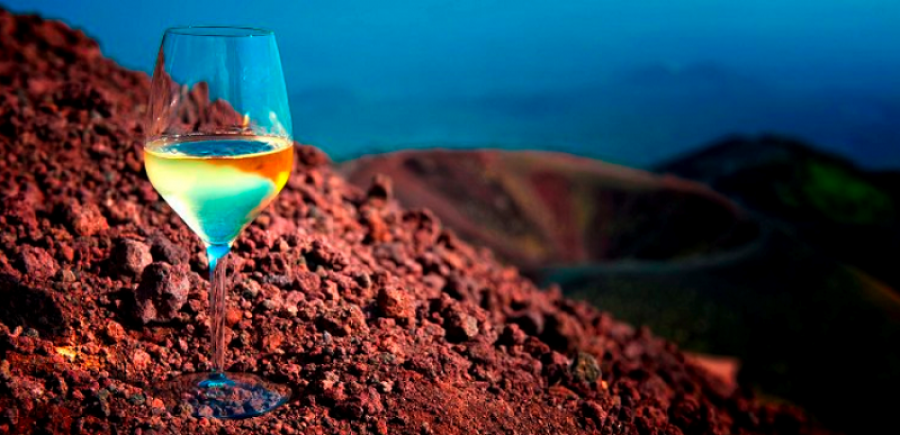Learning about wine
Volcanic wines
 The volcanoes in Italy form a veritable “backbone” that connects the South, the islands and the North and which also characterizes the production of so-called volcanic wines. The volcanic soil is one of the most particular and precious for the production of wine, we discover why.
The volcanoes in Italy form a veritable “backbone” that connects the South, the islands and the North and which also characterizes the production of so-called volcanic wines. The volcanic soil is one of the most particular and precious for the production of wine, we discover why.
Volcanic soil
The volcanic eruptions that have occurred in the past have created a terrestrial substratum that has proved to be very valuable for agriculture and viticulture. The particular porosity of the rocks that make up these soils also guarantees a constant presence of moisture, which helps the plant not to suffer in hot periods.
The volcanic soils are in fact ideal for the production of sandy wines, with very fine and particularly permeable ash, they are also rich in phosphorus, magnesium and potassium. Factors from which wines (mostly whites) derive characterized by a complexity, flavor and great minerality and acidity. From the wines that are born in this type of land you can get great finesse and complexity. The sensations are elegant, the floral prevails, because the fruit is subtle and also leaves room for spicy notes.
The volcanic areas
There are many other volcanic areas that give life to wines with these characteristics, from Valle d’Aosta to Pantelleria to get to the most famous and known: Etna.
The most known areas for the production of volcanic wines are: the Soave, the Vesuvio, the area of the Campi Flegrei in Campania, the area around Etna, the island of Pantelleria, the area of Frascati, that of Viterbo in Lazio , the low Tuscany and Umbria.
The true value of Italian wines compared to other volcanic wines of the world is the fact that they are born in territories with historicized vines, not cultivated with an industrial approach and without the use of international vines. It is therefore a true and artisanal viticulture. Must try them!
Good day everyone!
Ilde





